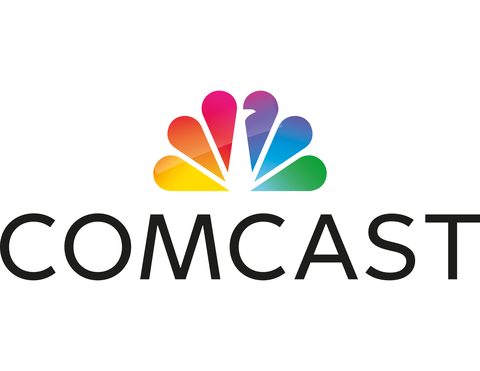Comcast Releases 2020 Network Data, Highlighting COVID-19 Impact as World Approaches First Anniversary of Pandemic
Comcast Releases 2020 Network Data, Highlighting COVID-19 Impact as World Approaches First Anniversary of Pandemic
Smart technologies, more than $15 billion in investment since 2017, allowed network to manage elevated demand driven by large growth in online video and gaming
PHILADELPHIA--(BUSINESS WIRE)--Comcast Corporation today released 2020 network data showing that years of strategic investment, combined with advancements in network software, were among the primary factors that allowed its network to perform at such a high level throughout a year marked by tens of millions of Americans transitioning to working and learning from home.
As the world approaches the one-year anniversary of the widespread pandemic stay-at-home shift, 2020 traffic patterns reveal a sharp traffic surge in March and April, followed by a transition into a more typical – although still elevated – growth trend throughout the balance of the year.
“The Internet was a bright spot during the darkest hours of 2020, keeping hundreds of millions of people connected to work, school, entertainment, and most importantly, each other,” said Tony Werner, President of Technology, Product, Xperience at Comcast Cable. “We’re proud of the years of strategic investment and innovation that enabled us to build the foundation of a high-speed, intelligent network designed to scale to the needs of our most demanding users, and also adapt to unexpected events.”
2020 at a glance:
- Peak Internet traffic rose 32 percent over pre-pandemic levels, and over 50 percent in some markets in March.
- Peak downstream traffic in 2020 increased approximately 38 percent over 2019 levels and peak upstream traffic increased approximately 56 percent over 2019 levels.
- Despite the growth in upstream traffic, traffic patterns remained highly asymmetrical, as downstream traffic volumes were 14x higher than upstream traffic volumes throughout 2020.
- In the span of 4 months in the wake of pandemic lockdowns, Comcast’s network experienced almost 2 years-worth of traffic growth.
- Surprisingly, despite increases in videoconferencing activity, entertainment activities continued to dominate network traffic, with video streaming accounting for 71 percent of all downstream traffic, and growing by 70 percent over 2019 levels.
- Other key drivers of downstream traffic in 2020 were online gaming and the accompanying software downloads (10 percent), and web browsing (8 percent).
- Despite growth in videoconferencing traffic, it still only accounted for less than 5 percent of overall network usage.
- For the first time ever, as Comcast customers surfed, streamed and emailed more than ever before, they generated more than a trillion Internet requests (DNS lookups) each day.
Throughout this increase in demand, Comcast continued to deliver above-advertised speeds to customers across the country, including in areas most affected by COVID-19. The remarkable performance of the network during this time can be attributed both to outstanding work by technical and care teams throughout the pandemic and to key innovations and billions of dollars in strategic investment for many years before the pandemic began:
- From 2017 through 2020, Comcast invested more than $15 billion to expand, strengthen and evolve its network.
- From 2017 through 2020, the company built an additional 39,153 route miles of fiber into the network, and made thousands of capacity augments from the core of our network all the way down to individual neighborhoods.
- Comcast engineers built multiple new smart software platforms – powered by artificial intelligence and machine learning – that can detect and fix problems before they affect customers.
- One of those software platforms, Comcast Octave – the completion of which was dramatically accelerated by Comcast engineers in response to the pandemic – enabled Comcast to increase upstream capacity by up to 36 percent, right at the time when traffic levels began to surge.
About Comcast Corporation
Comcast Corporation (Nasdaq: CMCSA) is a global media and technology company with three primary businesses: Comcast Cable, NBCUniversal, and Sky. Comcast Cable is one of the United States’ largest high-speed internet, video, and phone providers to residential customers under the Xfinity brand, and also provides these services to businesses. It also provides wireless and security and automation services to residential customers under the Xfinity brand. NBCUniversal is global and operates news, entertainment and sports cable networks, the NBC and Telemundo broadcast networks, television production operations, television station groups, Universal Pictures, and Universal Parks and Resorts. Sky is one of Europe's leading media and entertainment companies, connecting customers to a broad range of video content through its pay television services. It also provides communications services, including residential high-speed internet, phone, and wireless services. Sky operates the Sky News broadcast network and sports and entertainment networks, produces original content, and has exclusive content rights. Visit www.comcastcorporation.com for more information.
Contacts
Media:
David McGuire
215-422-2732
david_mcguire@comcast.com

